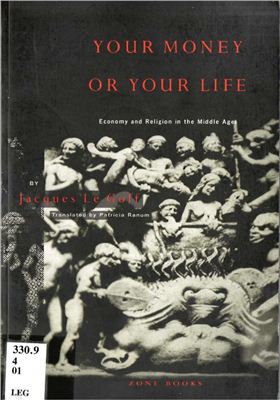Zone Books, 1990. - 127 pages.
In this book one of the most esteemed contemporary historians of the Middle Ages presents a concise examination of the problem that usury posed for the medieval Church, which had long denounced the lending of money for interest. Jacques Le Goff describes how, as the structure of economic life inevitably began to include financial loans, the Church refashioned its ideology in order to condemn the usurer not to Hell but merely to Purgatory. Le Goff is in the forefront of a history that studies "the deeply rooted and the slowly changing." As one keenly aware of the inertia of older societies, he is all the more able to delineate for us the disruptive forces of change.
Jacques Le Goff is director of the Ecole des Hautes Etudes en Science Sociales, Paris, and codirector of the Annales - Economies, Soci?t?s, Civilisations. lie is the author of The Birth of Purgatory and Time, Work, and Culture. Distributed for Zone Books.
In this book one of the most esteemed contemporary historians of the Middle Ages presents a concise examination of the problem that usury posed for the medieval Church, which had long denounced the lending of money for interest. Jacques Le Goff describes how, as the structure of economic life inevitably began to include financial loans, the Church refashioned its ideology in order to condemn the usurer not to Hell but merely to Purgatory. Le Goff is in the forefront of a history that studies "the deeply rooted and the slowly changing." As one keenly aware of the inertia of older societies, he is all the more able to delineate for us the disruptive forces of change.
Jacques Le Goff is director of the Ecole des Hautes Etudes en Science Sociales, Paris, and codirector of the Annales - Economies, Soci?t?s, Civilisations. lie is the author of The Birth of Purgatory and Time, Work, and Culture. Distributed for Zone Books.

